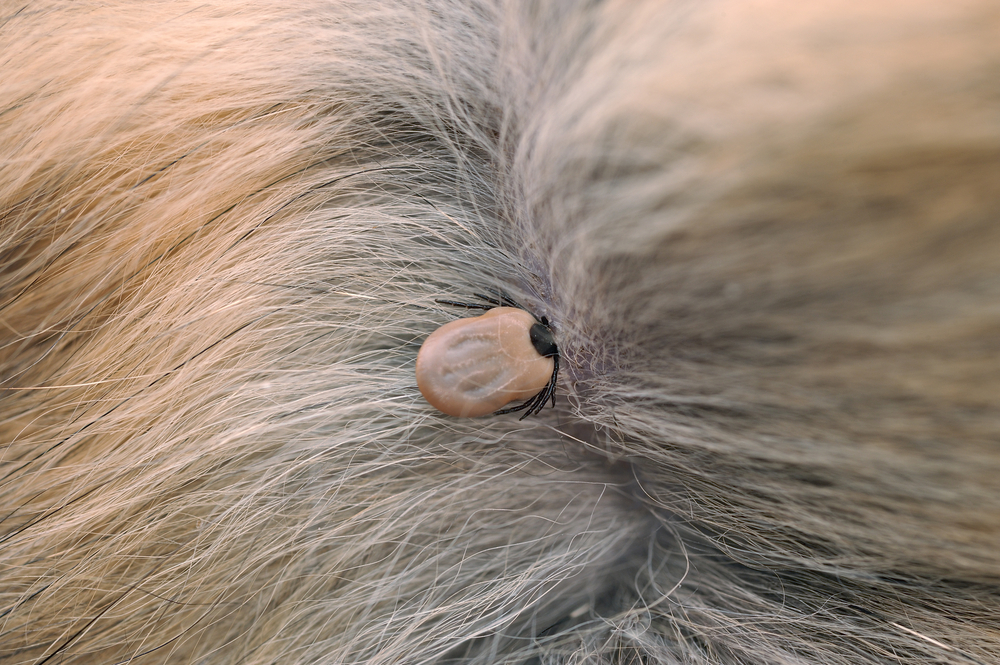Tick Prevention

We’re pleased to see that the weather is improving again but unfortunately with the warmer temperatures after a period of wet weather, the ticks are thriving and extremely prevalent this year. With our warmer winters, it has now been shown that ticks don’t fully go into hibernation and so they can even be present all year round. We’ve had quite a few patients come in with ticks recently, so we thought this would be the perfect time to discuss ticks and how to stop your pet from getting them.
Not only do ticks cause a nasty bite reaction, they can also be vectors for serious diseases such as Babesia. Until recently Babesia was not seen in the UK, but sadly due to stopping the requirements for compulsory tick treatment before entering the UK, there have been some confirmed cases, which were first noted in 2016. With that in mind, we do recommend being vigilant at checking your pets for ticks all year round, especially if they have a long coat which might be hiding the parasites.
How to prevent against ticks
We can prescribe very effective anti-tick treatments to prevent against your pet getting these horrible parasites. Please phone the practice to discuss which protocol would be most suitable for your pet as there are different ways of giving tick protection. These include a tablet (Bravecto or Nexgard Spectra) or a collar (Seresto), and we can help you determine what is the most appropriate treatment, depending on your pet’s lifestyle and the risk of them acquiring a tick.
What should you do if you find a tick?
The only way to fully remove a tick is to make sure you twist it and not just pull it out. Twisting will ensure that you remove the embedded mouth parts as well as the body. We find that the easiest way to do this is by using a Tick’O’Tom- let us know if you would like to buy one, we sell them here!
If you are at all unsure of how to remove the tick (or whether what you have found definitely is a tick…), we are very happy to discuss your concerns over the phone, or if required we can book an appointment so that we can remove it for you. Please phone us at The Cape Veterinary Clinic on 01483 538990.
Catherine Hannah BVSc MRCVS (References: Big Tick Project, MSD animal health)